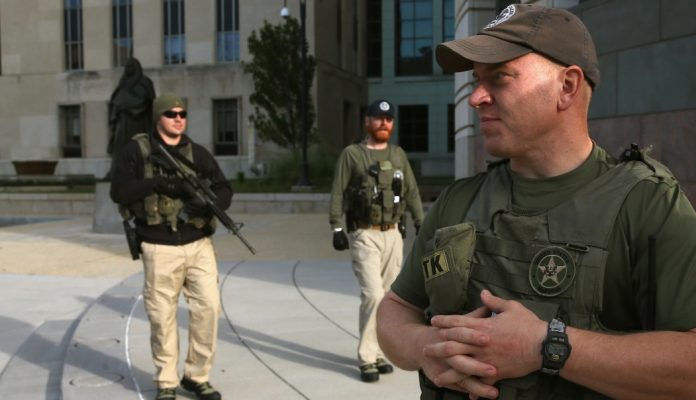
WASHINGTON – A federal judge set a September 2017 trial date for Ahmed Abu Khattala, a U.S.-designated terrorist whom prosecutors accuse of leading the 2012 attacks in Benghazi, Libya, that killed four Americans.
U.S. District Judge Christopher “Casey” Cooper of Washington gave notice in a scheduling order issued Thursday for a major terrorism trial in the nation’s capital, roughly five years after the attacks that killed U.S. Ambassador Christopher Stevens and three others on Sept. 11, 2012.
While the trial date might slip if unexpected disputes arise, both sides agreed to the calendar, which anticipates several stages of pretrial legal battling – including over how much classified evidence each side seeks to disclose and use.
The trial will be complicated by the backdrop of a chaotic civil war in Libya, which has fed a refugee crisis in Europe and been exploited by militants allied with the Islamic State. Prosecutors have already turned over about 20,000 pages of material to Abu Khattala’s defense; most of it is classified and much of the government’s case remains secret, including what witnesses it might seek to bring from Libya.
A spokesman for U.S. Attorney Channing Phillips of the District of Columbia declined to comment about Cooper’s order, citing pending litigation. Federal public defender A.J. Kramer did not immediately respond to a request for comment.
The notice came about six weeks after the Justice Department announced it would not seek the death penalty against Abu Khattala, who has pleaded not guilty after being indicted on 18 counts, including charges of murder of an internationally protected person, murder of an officer or employee of the United States, killing a person in an attack on a U.S. facility and providing material support to terrorists resulting in death.
In January 2014, the U.S. government designated Abu Khattala a terrorist and Ansar al-Sharia, an armed militia that seeks to establish sharia law in Libya, a terrorist organization.
The Obama administration authorized Abu Khattala’s capture in a June 2014 U.S. Special Operations raid in Libya after he was lured to a villa south of Benghazi.
In court papers, U.S. authorities alleged that Abu Khattala told others that he thought the American diplomatic presence in Benghazi was cover for a U.S. intelligence-gathering facility and vowed to “do something about this facility.”
Last year, a lawyer for Abu Khattala, standing next to the defendant, said in court that “everyone agrees what happened in September 2012 was a tragedy and Americans suffered a tragic loss.” Defense attorney Jeffrey Robinson added, “Mr. Abu Khattala agrees it was a tragic loss but disagrees he is the person responsible for it.”

